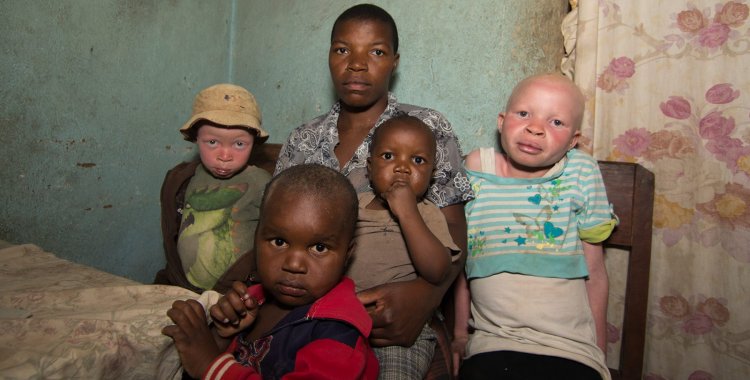Manuel Vapor told Lusa that the association, with representation in all provinces, supports over 2,000 members and the Ministry of Health 6,000 people.
According to Manuel Vapor, there are still difficulties in treating skin cancer, due to the lack of equipment and medicines, which is “a problem” mainly for those who come from the interior of the provinces, where there are no dermatologists.
“If we go to the oncology center [in Luanda] it is chilling to see the state of our brothers,” said Manuel Vapor, who preferred not to give figures on deaths, due to a lack of reliable information from the provinces.
Albinism is a rare genetic condition characterized by the absence or reduction of melanin production, the pigment that gives color to the skin, hair and eyes. To protect your skin and eyes, it is recommended to use sunscreen, clothing that covers a large part of the body, hats and glasses.
The leader of the 4As Association for the Support of Albinos in Angola complained about the difficulties in obtaining, for example, sunscreen, which is distributed “when the State sees fit”.
“Once, the State guaranteed that it could give us 2000 sunscreens - at the time it had statistics of 1400 members (…) -, but we only received 56”, he exemplified.
In addition to health challenges, the association also fights to end prejudices about albinism, which it is reducing by holding lectures in companies, schools and military and police units as well.
However, it is still common to hear that albinos “are a burden to the family”, because they supposedly do not have the ability to work, that they can only see at night, that they cannot eat beans or pork, that they need to spit or cover their belly button to avoid having albino children, among others.
“There are those who thought that having an albino child was a misfortune and there are people who, if they go to a house and find an albino, refuse to eat or drink [for fear of using the same utensils], there are also those who thought that albinos have a much higher IQ”, added the source.
Unlike other African countries, Manuel Vapor congratulated himself on the fact that in Angola there is no practice of killing albinos due to belief in witchcraft.
According to the official, in Angola some people view albinos “with good eyes, others do not”, stressing that he knows, without revealing which ones, that there are provinces where babies with albinism are killed at birth.
According to Manuel Vapor, there are also challenges in terms of social inclusion, mainly in terms of insertion into the job market, and the association has helped to train people for their survival.
People with albinism are still rejected from jobs because there are people who “think they are not capable of working, but this is not true”.
“I am an example, I am a police officer and I hold a leadership position without any problems,” he said, adding that these barriers make people with albinism vulnerable.
To overcome these difficulties, people have been trained to undertake certain areas, such as cutting and sewing, cooking, decoration, IT, to ensure their self-sustainability.
Manuel Vapor called on the Government to pay more attention to this small group of people, which when “well used is very useful” to society, urging the provision of free cosmetic products, similar to those who benefit from HIV/AIDS treatment and haemodialysis.
The association wants the Ministry of Transport to allow free travel for albino people, because many need to leave their municipalities for large cities to receive treatment.
Albinism is present in both black and white skinned people, in animals and plants, that is, in all living beings.







